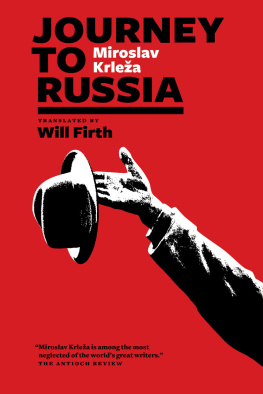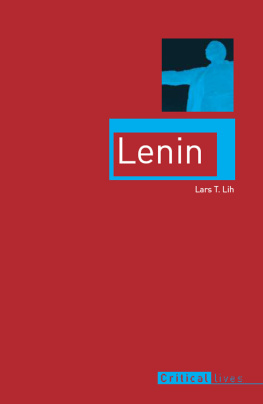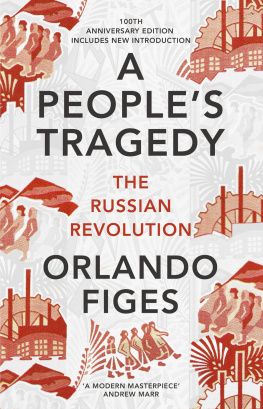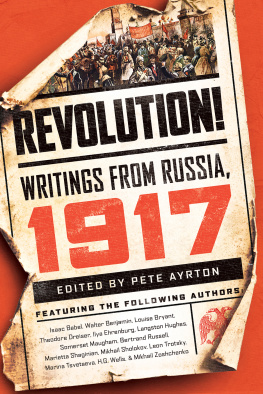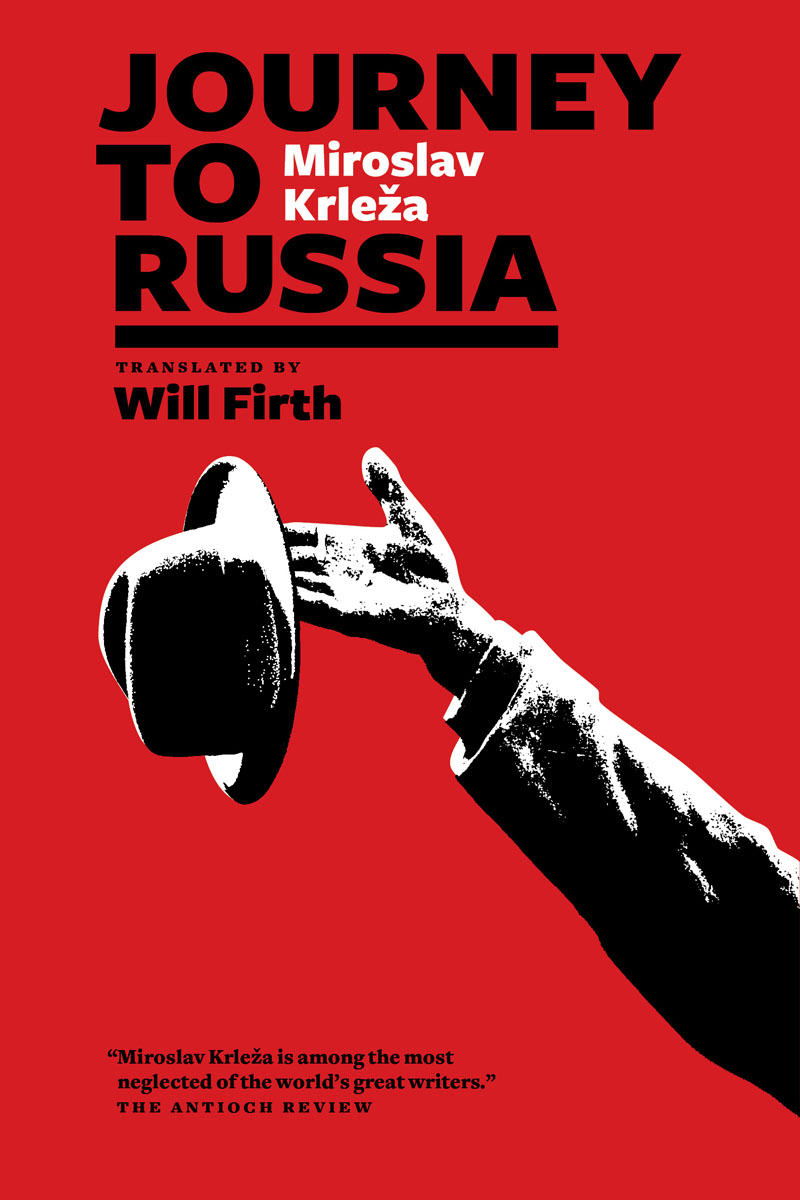

TITLE OF THE ORIGINAL EDITION
Izlet u Rusiju
Copyright Miroslav Krlea
Hrvatska akademija
znanosti i umjetnosti, 2021
English translation 2021 Will Firth
COVER AND LAYOUT DESIGN
Nika Erek
PUBLISHED BY
Sandorf Passage
South Portland, Maine, United States
IMPRINT OF
Sandorf
Severinska 30, Zagreb, Croatia
Sandorf Passage books are available to the trade through Independent Publishers Group: ipgbook.com | (800) 888-4741.
This translation was made possible by a grant from the City of Zagreb. It was also supported by the Writers House in Pazin, the Croatian Writers Society, the European Society of Authors, and the Dutch Foundation for Literature.



The CIP record is available in the computer catalog of the National and University Library in Zagreb under the number 000980467.

Library of Congress Control Number: 2020940943

ISBN
978-9-53351-029-3
Printed in Znanje, Zagreb
CONTENTS
Introduction
Journey to Russia by Miroslav Krlea (18931981) is a collection of impressionistic essays about the authors trip to the Soviet Union from the fall of 1924 until the spring of 1925. The current edition contains the majority of pieces that appeared in the first edition of Journey to Russia published in 1926. This translation is based on the 2013 Croatian edition published by Novi Liber in Zagreb, which does not include the opening stages of the trip through Vienna and Dresden. The essays collected here cover Krleas journey by train from Berlin through the Baltic states to Moscow, with a diversion to an unnamed outpost in the Soviet north.
Krlea undertook the journey in his early thirties, at a time when he was a rising literary talent in Zagreb, then part of the Kingdom of Serbs, Croats, and Slovenes (i.e. the first Yugoslavia). He was starting to establish himself as a poet, dramatist, essayist, and editor of two left-leaning cultural journals, Plamen (Flame) and later Knjievna republika (Literary Republic), with his longtime friend and colleague August Cesarec (18931941). Sympathetic to social democratic movements of the pre-World War I period and critical of the Austro-Hungarian military campaign he was forced to participate in as a colonial subject, Krlea was increasingly drawn to the politics of the left. He joined Zagrebs first Communist cell in 1919, committed to the politics of class emancipation and social equality.
In the 1920s, the Kingdom of Serbs, Croats, and Slovenes was a hostile environment for Communists, as the left posed a significant threat to the fragile monarchy. Together with the legacy of South Slavic social democratic movements of the late nineteenth and early twentieth centuries, the events of the 1917 October Revolution in Russia contributed to the evolution and development of Communist political thought in the Balkans. Thousands of young soldiers who had fought as subjects of the Austro-Hungarian empire on the Galician front, and who had been taken as prisoners of war, were liberated by the Russians in 1917. They brought the revolutionary movement with them upon their return home. In an attempt to thwart the energized political program that would jeopardize the countrys monarchic parliamentary democracy, the Constituent Assembly of the Kingdom of Serbs, Croats, and Slovenes passed a proclamation in 1920 illegalizing operations of the Communist Party of Yugoslavia. Its members found themselves at risk of arrest and deportation. Given the open hostility toward Communist thinkers and activists, culture became an important arena for discussion about politics, thrusting leftist literary journalssuch as those published by Krlea and Cesarecinto prominence. Journey to Russia is part of this history, as the majority of the essays that comprise the book were initially published in Knjievna republika.
When Krlea undertook his trip to the Soviet Union, he left behind a domestic climate of paranoia, fear, and enmity toward ideas of communism. Very little was known about the Soviet Union, though there was much negative speculation. Yet despite the mystique and enigmatic exoticism often attached to the imaginary geography of Russia, and the language of heightened yearning he himself uses with regard to the place, Krlea exhibits, above all, a proximity to the region. This is signaled in the naming of his work: Krlea does not so much travel to faraway Russia as go on an outing, an excursion (izlet in Croatian). In doing so, he rejects the established political topography of Europe as the geopolitical space that offers a civilizational order to emulate, to adopt. Rather, it is the Soviet Union that symbolizes future-oriented politics of class liberation, a clear antithesis to the bourgeois, decadent world of capitalist Europe. Europe is failing, writes Krlea, listing its signs of solipsism, decadence, and its intersecting crises of philosophy, art, and politics: Creative skill and art are transformed into decoration and mechanized art production. (From the Secession to Dada, the bluff rules Europe.)
Where does Europe begin and Asia end? he asks from Berlin, en route to Moscow. The terms used to explore this question call to mind various political and symbolic geographies, animated by dichotomous propertiesfor example, colonized Asia is described as impoverished and plebian. This constellation of economic and cultural underdevelopment produced by large-scale, long-term oppression is equally relevant for the post-imperial legacy of the Balkans, a theme Krlea would return to frequently in his writing. Yet Asia is not for him a static signifier of otherness whose difference can be assimilated through the capitalist order and transformed into progress. Instead, in Asia, as in Europe, class struggle rages in sooty factories. During the 1920s, Asia represented the site of rising revolutionary, anti-colonial struggle of peoples who were striving for political emancipation. The 1920 Congress of the People of the East in Azerbaijan is emblematic of the broader support for proletarian struggle by the Communist International. It was a time when, as Krlea notes, social relationships [were] shaken like geological deposits.
In Journey to Russia, politics coalesce with Krleas interest in people and their social relations so that his observations about communism breathe with lived experience. Yet there are passages where he simply sets out the axioms of state socialism and its historical developments in order to correct many of the tendentious lies and misconceptions propagated in his home country about the Soviet Union. These passages, however, also serve as an important political education for readers: Krlea capably clarifies the systemic exploitation in capitalism (and its military consequences) and further argues for the importance and necessity of class equality and the rise of the proletariat. Away from theoretical reflections, his observations of life in the Soviet Union register the pressures and the difficulties of life under socialism. He is not so blinded by political idealization not to realize the challenges posed by comprehensively overhauling social organization. This does not, however, displace the optimism unleashed by early twentieth-century visions of Marxism, especially in terms of what it has to offer in the class struggle against colonial imperialism.
Next page
